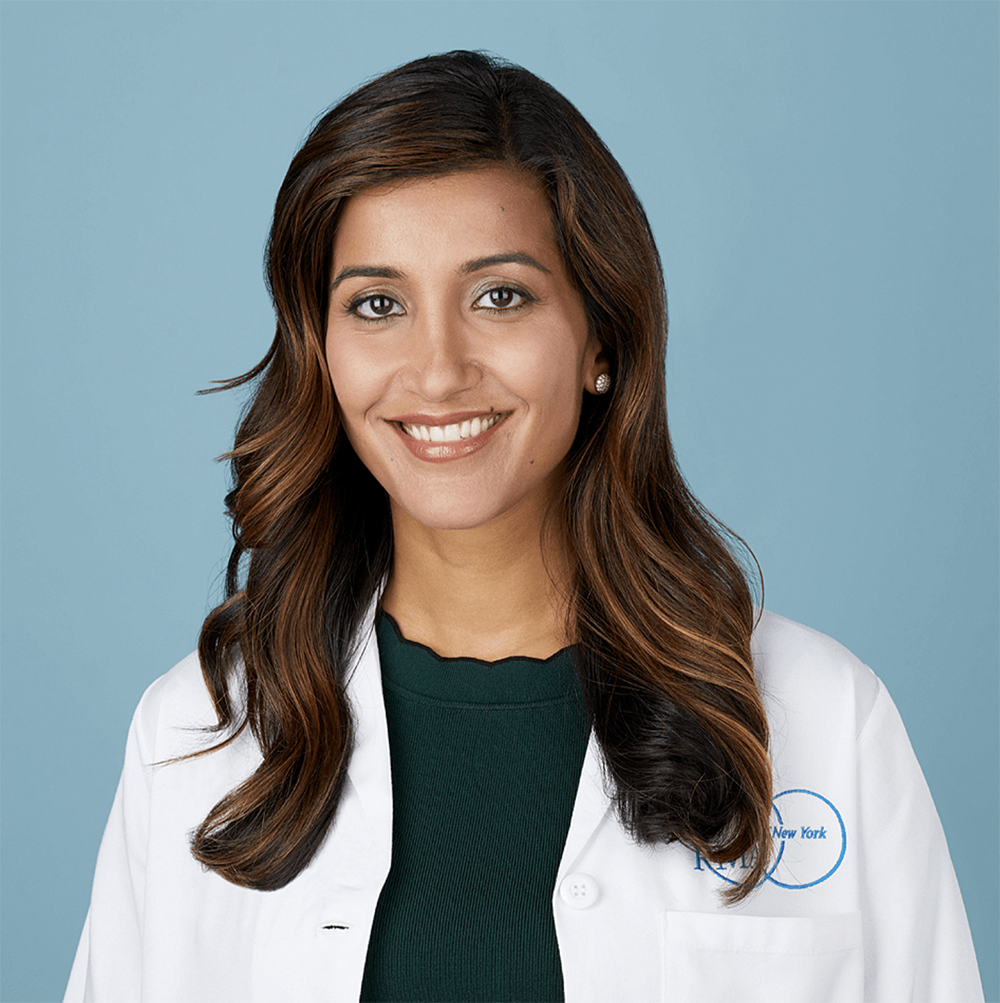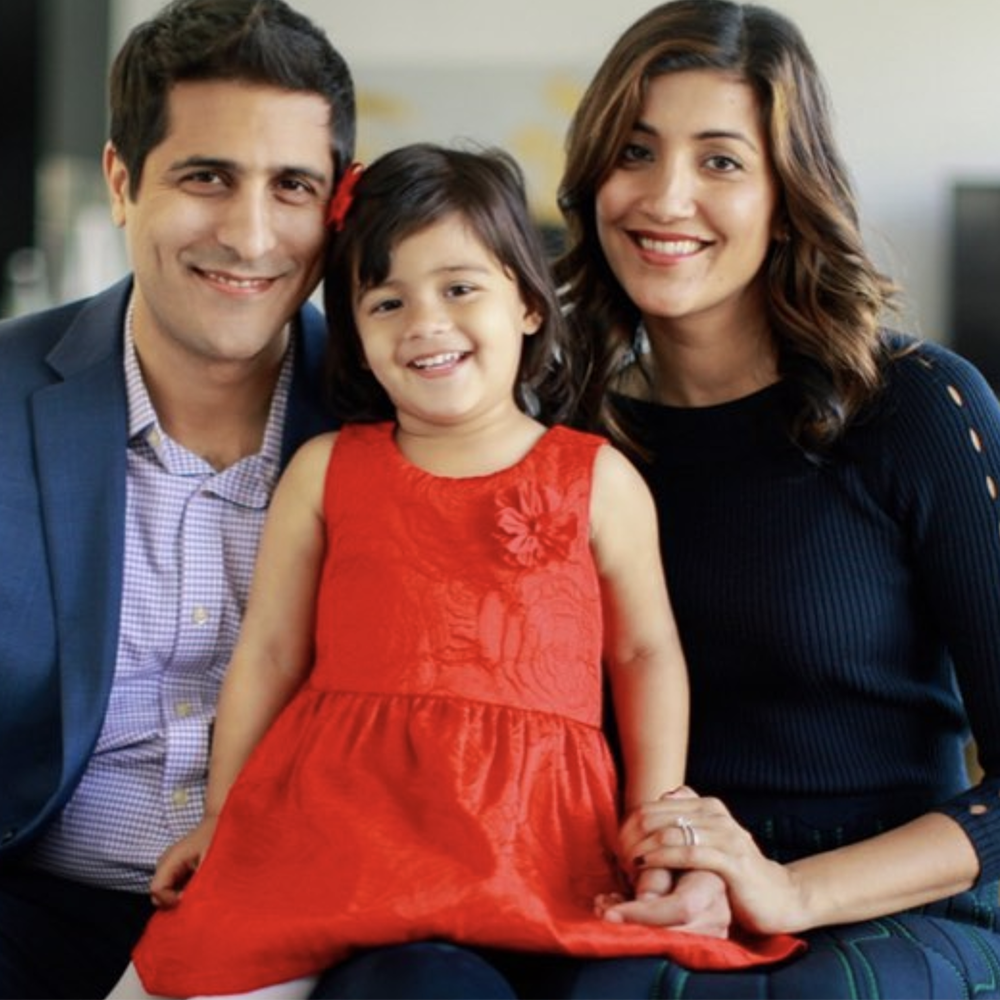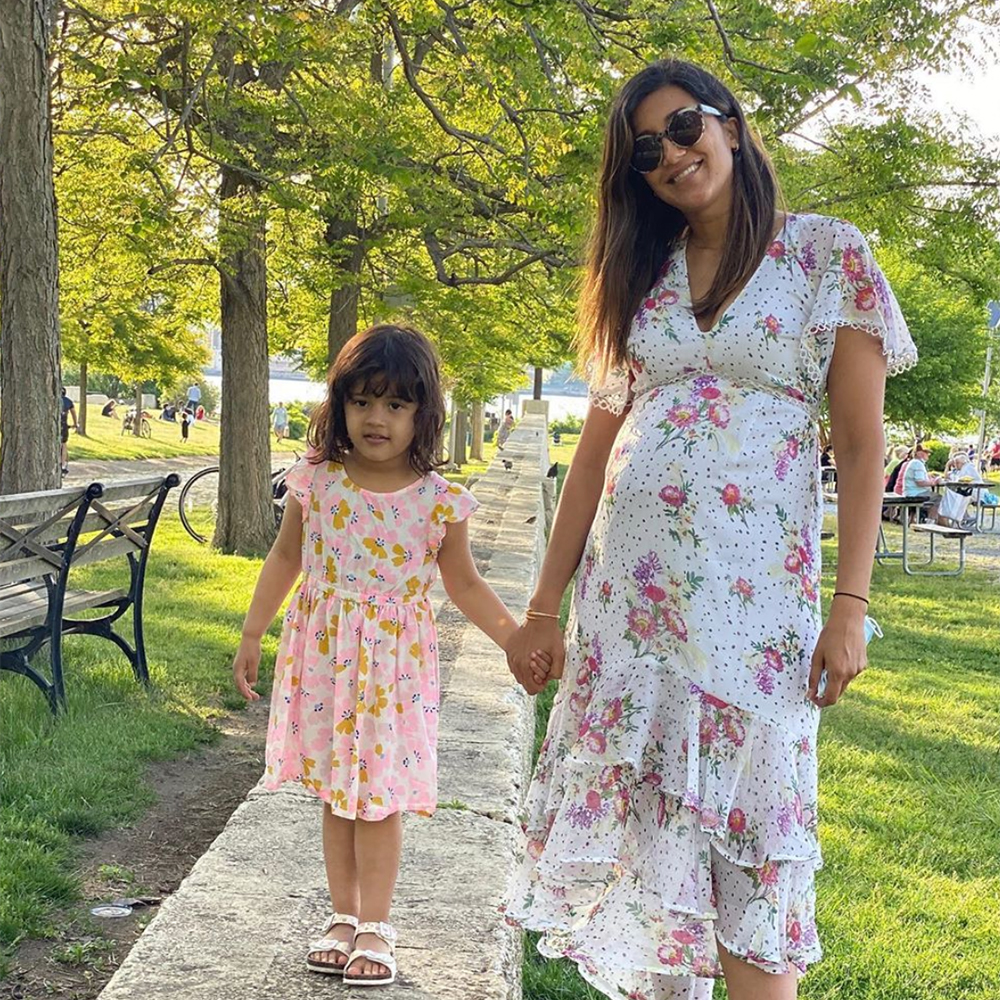Reproductive health in the age of COVID-19 is a topic we’re extremely interested in covering. We are a platform that is inclusive to all mothers. We want to deliver important mommy news to all families out there. If you’ve been reading any of our coverage, you’ll notice that a certain incredible doctor has been giving us the inside scoop on becoming a mother during COVID-19. Dr. Lucky Sekhon is a reproductive endocrinologist and infertility specialist, a board-certified obstetrician and gynecologist, and an assistant clinical professor in the Mount Sinai Health System. She has particular expertise in fertility preservation (egg freezing), LGBTQ family building, and in-vitro fertilization. Dr. Sekhon maintains a busy clinical practice. On top of this, she continues to publish and present cutting edge clinical research in the field of reproductive medicine.
We decided to flip the switch and ask Lucky about her life. We spoke about being in the medical field, work during COVID-19, and also while being pregnant. Our go-to guide has a wealth of information and an extremely interesting life to bat. Keep reading for more on all things lucky!
1) What is it like working in a doctor’s office during COVID-19? What has changed?
I am a fertility doctor based in a clinic in Manhattan, where we treat a wide range of conditions including infertility, fertility preservation (egg or embryo freezing), polycystic ovary syndrome, early menopause, etc. COVD-19 has presented us with unique, unprecedented challenges – as prior to the pandemic, we did not have to be mindful of things such as the need for social distancing. As a busy, high volume practice, we have had to be creative and innovative in our approach to ensure that we can continue to deliver care with safety and public health being paramount. We previously catered to our patients’ need for convenience in terms of where and when they wanted to come in for their routine visits and treatment monitoring ultrasounds. Now we have a much more strict policy and everything has to be scheduled in advance.
2) What are in-person visits like?
Patients and staff all wear masks and have their temperature checked and undergo screening before being admitted into the office. We are limiting the volume of cases/cycles at any given time. What hasn’t changed is our unwavering commitment to our patients and their clinical care. We took a limited, but appropriate, pause on fertility treatments during the height of the crisis in NYC, and used that downtime to work tirelessly on coming up with new ways to operate and treat patients that would make sense and be as safe as possible in the post-COVID-19 era.
When in-person visits and conversations became more difficult or risky, we quickly adapted and began to see patients via telemedicine on the phone or video chat rather than hitting the pause button on their care entirely. I use email to communicate with my patients and stay connected. I do this with my parents even more now. This pandemic has led to many people being prone to feeling isolated as they work and try to do as much as they can from home.
The initial consultation is broken into two parts. I spent about an hour having a detailed, focused conversation with the patient over video chat, where we discuss their background history, what tests they might need, and tentative treatment options. Then, I schedule them to come in for a very abbreviated, stream-lined, and safe and socially distanced visit. There, we can draw their labs and do an ultrasound or any procedures necessary. I have found this works really well. It allows us to have a full, open conversation without having masks on, which allows for an easier time connecting and tends to be more comfortable for all.
3) How are you revamping your business model to fit with the current time?
I am a physician, not a business owner. The main revamp from my perspective are the changes/adaptations. We have made to ensure we can safely practice medicine and continue to see and treat patients. The majority of my initial consultations are being held via telemedicine. This is a new shift in our practice and field, as a whole. We are limiting the number of IVF and egg freezing cycles that are starting on any given day, to maintain a steady, even, controlled volume throughout and to avoid stressors such as a busy waiting room or procedure room, which is the antithesis of social distancing. This has been working really well. We use strategies such as birth control, as needed, to help time out when different patients start their treatment cycles.
4) What is it like treating pregnant women during this time?
I have a lot of empathy and compassion for all women. Especially those who are trying to conceive and/or pregnant during this pandemic. It has been a rollercoaster of emotions and anxiety. Especially back in March – April when we were still in the earliest phase of collecting data about what it means to be pregnant and to contract COVID-19. As case numbers have fallen, and we have been able to organize the data/research, we are seeing a reassuring picture that most pregnant women who caught COVID-19 were asymptomatic or had mild symptoms. Additionally, unlike other viruses such as Zika, this is not a virus that appears to have a link to any major adverse outcomes in pregnancy such as birth defects. I have spent a lot of time communicating the cutting edge research and data being published as it becomes available.
The key has been to provide as much emotional support and information as possible. We are advising anyone trying to conceive or who is already pregnant to err on the side of caution. Exercise good judgment, social distancing, and whatever measures they can to minimize their risk of getting sick at this time.
I am making an active effort to do as much telemedicine as possible and to minimize everyone’s exposure by bringing them in for testing/scans only as needed.
5) How has being pregnant changed your work/life balance?
It hasn’t. I don’t plan to slow down or stop working until I deliver. In some ways being pregnant myself, during this pandemic, made the pregnancy fly by. I think it is because I have very little bandwidth to focus on my own pregnancy. I was more focused on how to continue patient care and help my patients through this trying time. Being pregnant in a pandemic gave me a unique perspective of what my patients were feeling and experiencing during this trying time. In many ways, it probably opens my eyes to their experience and personal challenges in a way that wouldn’t have been possible, otherwise.
In general, I think the entire world has been preoccupied with this global public health crisis. A lot of other factors or considerations that normally would have impacted our lifestyles and day to day experience, went on the back burner.
6) Give us a rundown of your current day today?
I spend 1 – 2 days per week doing telemedicine from home and the other days of the week are spent in the office, wearing personal protective equipment (an N-95 mask), while doing ultrasounds, egg retrievals, embryo transfers, and seeing patients for whatever in-person needs they may have as part of their initial consultation or treatment. My day usually begins at around 7 am and ends between 5 – 6 pm. I spend a lot of time in between seeing patients virtually and in-person. I am making phone calls and answering emails to keep the lines of communication open with my patients so that I can support them to the best of my ability and ensure all their questions are answered.
At the end of the day, I go home or leave my home office and spend time with my husband, Bobby, who is a software engineer and mostly works from home, and my 3-year-old daughter, Ariana. We eat dinner together and spend most of the evening together as a family- maybe even go for an evening stroll. That is the best part of my day!
7) What advice do you have to business owners about adjusting to life during COVID-19?
To business owners and anyone trying to continue their work during COVID-19, including physicians, the key is flexibility and adaptability. This pandemic faced us with unique challenges that we never had to consider previously. Everywhere you look, there are signs of businesses and people in survival mode. They are finding ways to adapt. In my field, specifically, the biggest adjustment has been the rise of telemedicine. Prior to COVID-19, I only ever used to see international patients who wanted to speak regarding their fertility and possible treatment options. I think telemedicine is going to become integrated as part of routine medical practice.
Doctors’ offices and hospitals have been working closely with insurance companies. They are ensuring that every facet of the healthcare industry, including healthcare coverage, is adjusting to the new normal. As well as supporting patients and their physicians as they try to minimize in-person exposure. Certain tests, such as genetic screening to see whether couples carry certain mutations, are increasingly being done. You do this by mailing out saliva kits to peoples’ homes rather than having them come in. Finding innovative ways to reach patients and continuing to care for them by leveraging technology has been a key focus in our practice during this challenging time.
8) What’s your advice for pregnant mamas?
For pregnant women or those who wish to build their family during this time, I recommend being as careful as possible and avoiding at-risk exposures and adhering to social distancing guidelines. View this pandemic as a marathon and pace yourself. It is better to compartmentalize and have mini-milestones to get past in the pregnancy. This is versus looking at it like 9 months. It feels less daunting with that approach. Find ways to make this time easier on yourself mentally- make an effort to reach out to your support circle and don’t allow yourself to become socially isolated.
I don’t anticipate the world will rid itself of COVID-19 in the near future. So unless there was a real concern about pregnancy and COVID-19 to justify asking women to hold off on building their family, I think anyone interested in becoming pregnant or having a baby should continue to proceed with their efforts and plans. Especially since female fertility is such a time-sensitive issue. This is particularly true at age 35 and beyond when the decline in egg count and quality becomes accelerated. It is a good idea to talk to a professional. This will make the process less anxiety-provoking and you will feel better supported in your journey.
It also may help to uncover certain red flags or issues you may not be aware of. This ultimately may lead to a more efficient approach in helping you to conceive, and less time wasted. I think initiating a conversation and having a ‘fertility check-up’ is always a good idea, regardless of the pandemic. However, given the added stress of the unknowns surrounding COVID-19, it would be particularly helpful to get plugged in with a professional at an early stage.
9) How do you hope the pandemic will change the world for the better?
It is hard to find a silver lining amidst all of the pain and uncertainty of the pandemic. I think most will agree that this forced shut down which brought most of our regular lives to a grinding halt was a way of hitting the reset button. Working from home gave many people time with their families that they otherwise never had. The environment got a major break from industrialized waste and gas emissions. People acquired new life skills (ie. sourdough/banana bread aficionados, I’m talking about you). We have time to rethink their life path, career choices, relationships, etc. I hope that this pandemic will help us all to take stock in what’s important. We should stop taking our health, the environment, and life’s simple pleasures for granted.
While you’re here, please check out some of doctor Sekhon’s other insights on pregnancy and COVID-19.



